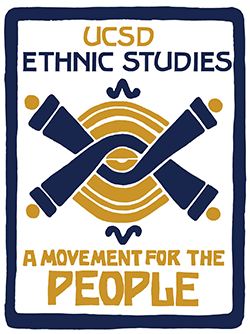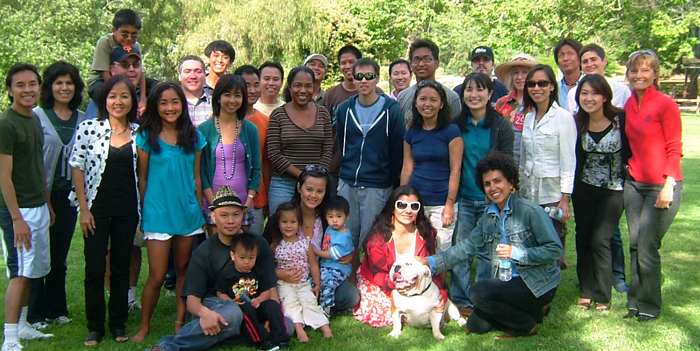
Current Graduate Students
Click on the names below to read about each of the current graduate students in the Ethnic Studies Department at UCSD
Christina Acosta
Christina Acosta (Yoeme)
Email: Chacosta@ucsd.edu
Prononus:They/she
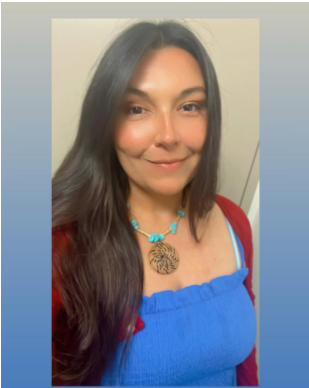 Christina Acosta (Yoeme, they/she) has interests in intergenerational strength and healing, abolition, the body as an archive, Indigenous language reclamation, ancestral foods, femme, Two-Spirit and Indigiqueer embodied knowledges, collective resistance, liberation and performance studies.Christina enjoys singing karaoke, writing poetry and hanging out with their partner Jaime and fur child Luna. Before UCSD Christina lectured at two CSU’s (Stanislaus and Los Angeles) for 5 years (2019-2024) in the Departments of Ethnic Studies, Chicanx/Latinx Studies, and American Indian/Indigenous Studies in between earning their MA at UC Merced in 2019 and the start of their PhD program in Ethnic Studies in Fall 2024. Christina was a double major at CSU Fullerton in Psychology and Chicana/o Studies where she was a Ronald E. McNair Scholar and earned her BA in 2015. They transferred from Fullerton College where they earned their AA in Psychology in 2012. Christina believes in the importance of building a strong community and loves to talk to aspiring grad students, current undergraduates, fellow grad students and anyone who wants to grab coffee or tea and chat. Christina also loves being involved in the local community and is open to organizing events, teach-ins, or collaborating on creative ideas. Reach out anytime!
Christina Acosta (Yoeme, they/she) has interests in intergenerational strength and healing, abolition, the body as an archive, Indigenous language reclamation, ancestral foods, femme, Two-Spirit and Indigiqueer embodied knowledges, collective resistance, liberation and performance studies.Christina enjoys singing karaoke, writing poetry and hanging out with their partner Jaime and fur child Luna. Before UCSD Christina lectured at two CSU’s (Stanislaus and Los Angeles) for 5 years (2019-2024) in the Departments of Ethnic Studies, Chicanx/Latinx Studies, and American Indian/Indigenous Studies in between earning their MA at UC Merced in 2019 and the start of their PhD program in Ethnic Studies in Fall 2024. Christina was a double major at CSU Fullerton in Psychology and Chicana/o Studies where she was a Ronald E. McNair Scholar and earned her BA in 2015. They transferred from Fullerton College where they earned their AA in Psychology in 2012. Christina believes in the importance of building a strong community and loves to talk to aspiring grad students, current undergraduates, fellow grad students and anyone who wants to grab coffee or tea and chat. Christina also loves being involved in the local community and is open to organizing events, teach-ins, or collaborating on creative ideas. Reach out anytime!
Cristal Alba
Cristal Alba
Email: cgalba@ucsd.edu
Education: University of California, Los Angeles, BA Chicana/Chicano Studies
Research Interests: Pornography and queer Latinx identity.
Sara Almalla
Sara Almalla (She/Her/Hers)
Email: salmalla@ucsd.edu
Doctoral Candidate
Please select if you are a Job market candidate for the 25-26 Academic Year: No, I am not yet a doctoral job market candidate
Please select if you would be open to having prospective students email you with questions regarding your doctoral student experience: Yes please let prospective students know I am available as a student resource.
Your reasearch intrests include:Critical refugee studies, education studies, k-12 education, speculative futures studies, social movements
Which course,assignment or reaearch opportunity has beem most remarkeble, thus far, as an Ethnic Studies doctoral student? Working on the RefugeeSanDiego website
Which course assignment or research opportunity has challenged you the most, thus far, as an Ethnic Studies doctoral student? The qualifying process
What has been your produest accomplishment (so far) as an Ethnic Studies doctoral student? The Refugee San Diego project I worked on (refugeesandiego.com)
How do you look forward to impacting the field of Ethnic Studies?Teaching at a community college and working with/in local refugee communities.
Josh Bender
Josh Bender
Email: j2bender@ucsd.edu
Education: BA English and American Literature, NYU; MA Southeast Asian Studies, U of Washington
Antonio Catrileo
Antonio Catrileo
Email: acatrileo@ucsd.edu
Education: Pontifica Universidad Católica de Valparaiso, BA and MA
Research: Mapuche Two-Spirit communities and histories
Adriana Echeverria
Adriana Echeverria
Email:aechever@ucsd.edu
Burgundy Fletcher
Burgundy Fletcher
Email: bjfletch@ucsd.edu
Isabel Gurrola
Isabel Gurrola
Email: isgurrola@ucsd.edu
Pronouns: (she/her)
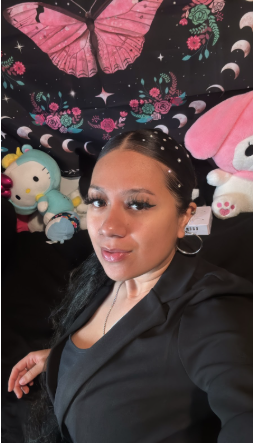 Research interest: Black & Latinx Popular Culture; Digital Humanities & Subcultural Documentation; Race, Gender, and Queerness in Underground Music Scenes; Rebel Archives & Counter-Archiving; Sound Studies & Sonic Resistance, spatial politics, urban studies (specifically Los Angeles)
Research interest: Black & Latinx Popular Culture; Digital Humanities & Subcultural Documentation; Race, Gender, and Queerness in Underground Music Scenes; Rebel Archives & Counter-Archiving; Sound Studies & Sonic Resistance, spatial politics, urban studies (specifically Los Angeles)
Bio: Isabel Gurrola (she/her) is a product of South Central Los Angeles and Norwalk. She earned her B.A. in Ethnic Studies with a concentration in Chicana/o Studies and a minor in Human Services from California State University, Fullerton. She later obtained an M.A. in Chicana/o and Latina/o Studies from Cal State LA and was a Sally Casanova Pre-Doctoral Scholar, completing a summer research program at UCLA under the guidance of Dr. Genevieve Carpio. Currently a Ph.D. student in Ethnic Studies at UC San Diego, her research explores underground raves as sites of rebellion where marginalized communities of color document their histories and aesthetics as resistance to erasure. She also critiques hungry listening, examining how house and techno music is consumed by elites without recognition of the communities that created it. Beyond academia, Gurrola is deeply involved in community organizing, working with coalitions in South Central Los Angeles that share resources and advocate for education rights, as well as local and national policies affecting marginalized communities. When not researching or organizing, she loves spending time at the beach, finding both solace and inspiration in the ocean.
Oscar Gutierrez
Oscar Gutierrez
Email: ogutierr@ucsd.edu
Education:
B.A. in Journalism and Race and Resistance Studies, San Francisco State University (2017)
Environmental Justice, Latinx Studies, Critical Geography, Land and Memory, Working-class Epistemologies, Industrial Labor, Political Activism and Social Movements, (Southeast) Los Angeles, Gender and Migration, Queer Studies, Settler Colonialism, Community-based Participatory Research, and Grassroots Intergenerational Organizing.
Eliana Hernandez
Eliana Hernandez
Email: erh008@ucsd.edu
Pronouns: (she/they)
Education: BA in Race and Resistance Studies and criminal Justice Studies, San Francisco State University (2021)
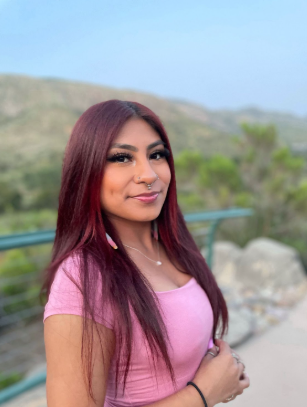 Research Interests: Rematriation, Political education, Grassroots organizing and intertribal organizing, Land and Water based education, Indigenous epistemologies, Indigenous sovereignty, Indigenous Land stewardship, Land-based pedagogy, Refusal and resilience, Indigenous and Black Solidarity networks, Rebel archives, Memory, Matriarchy, and Oral histories. As a lifelong learner, my interests will continue to be added to and change.
Research Interests: Rematriation, Political education, Grassroots organizing and intertribal organizing, Land and Water based education, Indigenous epistemologies, Indigenous sovereignty, Indigenous Land stewardship, Land-based pedagogy, Refusal and resilience, Indigenous and Black Solidarity networks, Rebel archives, Memory, Matriarchy, and Oral histories. As a lifelong learner, my interests will continue to be added to and change.
Eliana Hernandez (she/they) is a Yoeme and Pipil urban Native born and raised in Huchiun territory (East Bay Area). She earned her Bachelor of Arts in Race and Resistance Studies and Criminal Justice Studies with a minor in Queer Ethnic Studies from California State University, San Francisco. She was honored to be able to wear the hood for the College of Ethnic Studies and to speak on behalf of the 2020-2022 graduating classes at her virtual graduation in 2021 and in person in 2022. After obtaining her bachelors, she went on to work at Sogorea Te’ Land Trust where she was blessed to be able to develop and co-facilitate a decolonial, land and water based youth program for BIPOC high school youth on returned Lisjan Ohlone lands, called Mitiini Numma for three years.
She is currently a first year PhD student in the Department of Ethnic Studies at the University of California, San Diego. Their research focuses on Indigenous land epistemologies, as well as Indigenous, Black, and migrant solidarity networks. They look to contemporary movements for community gardens, Indigenous land stewardship, grassroots organizing, decolonial education, oral histories, and community education networks, to understand how these projects work to transform communities towards a decolonial future for the next seven generations. Focusing on urban communities in so-called california, their research looks into how these communities are working towards collective liberation against colonialism and its co-constitutive systems of violence. Their research project ultimately aims to foreground current radical communities breaking that dependency in various ways and how those communities can be an example to other communities looking to break that dependency towards liberation praxis. She loves spending time with her three younger siblings and family/friends, is a lover of hip-hop and r&b music, and is a dog parent to an almost three year old pitbull rescue, Tina.
Tracey Hoang
Tracey Hoang
Email: trh009@ucsd.edu
Pronouns: she/her
Education: BA in Asian American Studies, BS in Earth System Science &
MA in Asian American Studies from UC Irvine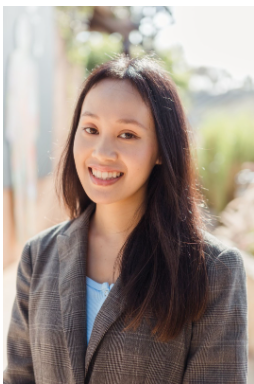
Research Interests: Critical Refugee Studies (refugee communities and community building), Asian American Studies (specifically Southeast Asian/Vietnamese American Studies), Transnational US history, militarism, imperialism/colonialism, politics, and the impacts of war on memories. My interests are ever-changing and evolving as I learn and grow!
Why ES/ Why ES at UC San Diego: I appreciate Ethnic Studies as it gave me the vocabulary to articulate my complex feelings of gratitude and anger towards the United States as the daughter of refugees. It also filled in gaps in my people’s history left out of textbooks. I am incredibly grateful to the Department of Ethnic Studies for its long history of supporting immigrant and refugee communities. In addition, the department also has a history of speaking out against regimes of oppression and contemporary human rights issues despite the potential of retribution.
More About Me: I am originally from Orange County and return as often as possible to spend time with my friends and family. On the rare occasions I leave my apartment, I enjoy going out and trying new food places. I would love to hear your recommendations for restaurants or boba! Please don’t hesitate to email me if you have any questions about the program and/or would like to discuss my research interests! I am so excited to (potentially) be in community with you all.Tirrezz Hudson
Tirrezz Hudson
Email: thudson@ucsd.edu
Education: North Carolina State University, BA
Research: Black masculinities and sexualities; Black spiritualities
Cheron Laughing
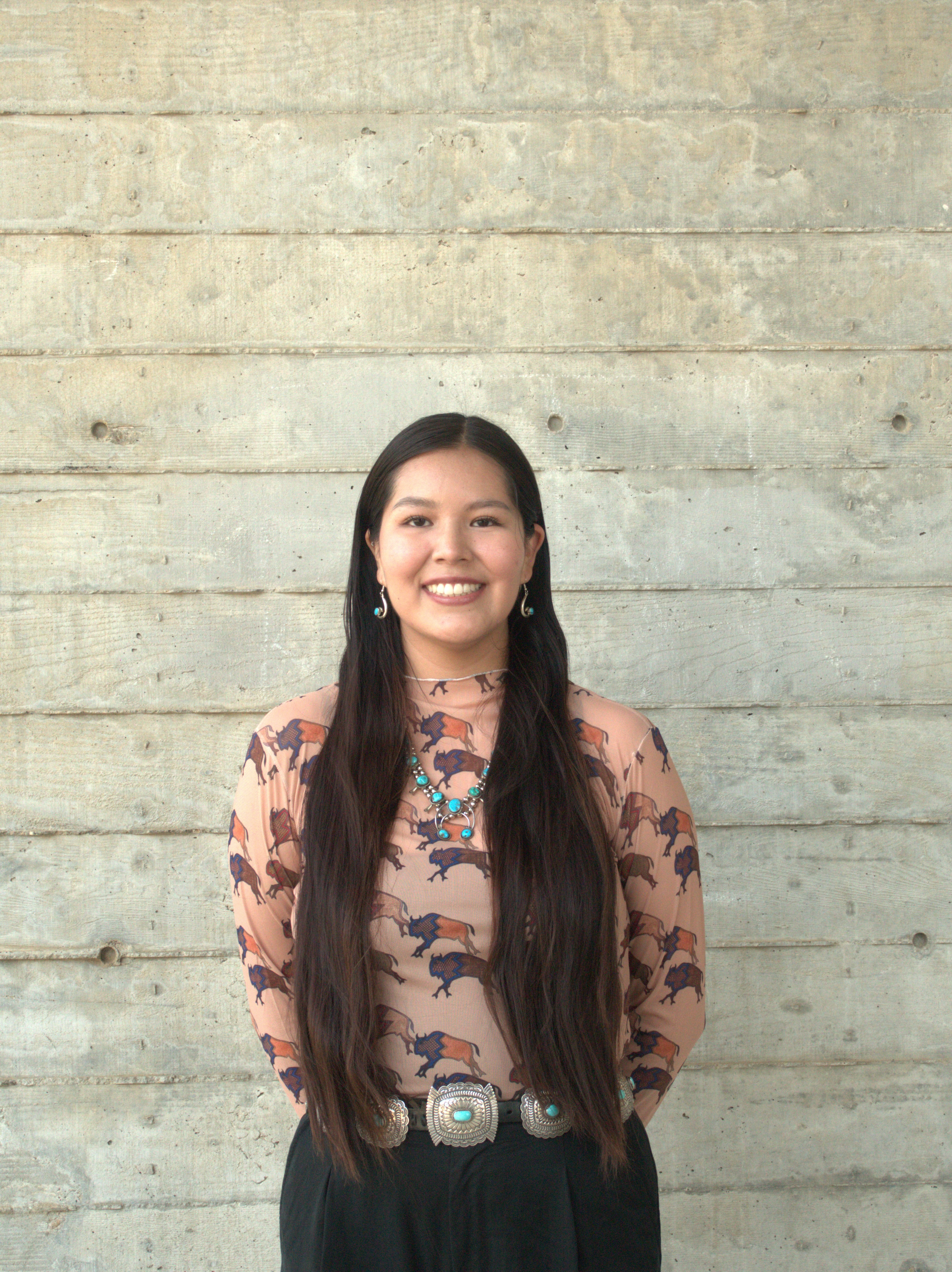 Cheron Laughing(She/Her/Hers)
Cheron Laughing(She/Her/Hers)
Email: claughin@ucsd.edu
Doctoral Candidate
Please select if you are a Job market candidate for the 25-26 Academic Year: No, I am not yet a doctoral job market candidate.
Please select if you would be open to having prospective students email you with questions regarding your doctoral student experience: No, at this time I am not able to serve as a student resource for prospective applicants
Your reasearch intrests include:Native Higher Education, Native Gender Studies, Land Based Pedagogies & Indigenous Food Sovereignty, Native Media & Pop Culture
Which course,assignment or reaearch opportunity has beem most remarkeble, thus far, as an Ethnic Studies doctoral student? Indigenous Epistemologies and Their Disruptions with Dr. Jolivette
Which course assignment or research opportunity has challenged you the most, thus far, as an Ethnic Studies doctoral student? Decolonizing Methodologies with Dr. Ambo
What has been your produest accomplishment (so far) as an Ethnic Studies doctoral student? Passing my qualifying exams and promoting to Candidacy all the while being heavily involved in the Native campus community.
How do you look forward to impacting the field of Ethnic Studies?Challenging the field and folks in it to be cognizant of their relationship and responsibility to Native nations and communities.
Paola Godinez Martinez
Paola Godinez Martinez
Email: pgodinez@ucsd.edu
Education: B.S. Cognitive and Behavioral Neuroscience, University of California San Diego
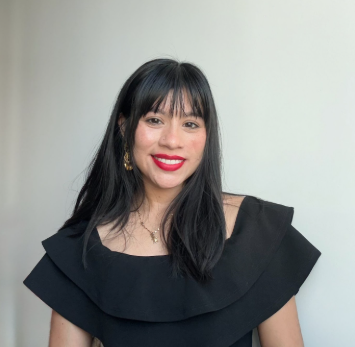 Research Interests: Intersections between Race, Gender, Health, and Migration; Radical Kinship; Critical Disability Studies and Queer Theory; Critical Refugee Studies; Body and Memory; Carceral-Medicine; Impacts of Colonialism on Health and Medicine.
Research Interests: Intersections between Race, Gender, Health, and Migration; Radical Kinship; Critical Disability Studies and Queer Theory; Critical Refugee Studies; Body and Memory; Carceral-Medicine; Impacts of Colonialism on Health and Medicine.
Bio: Paola’s (She/Her/Ella) journey into her research topics stems from a deeply personal and intellectual curiosity about how systems of power shape lived experiences. Growing up in South Central Los Angeles and the Inland Empire, Paola witnessed firsthand how societal norms and power dynamics construct meanings around the body. This sparked her desire to shift focus from purely biological or medical understandings of the body to a framework that emphasizes how societal structures and systems of oppression—such as racism, colonialism, ableism, and migration policies—physically and psychologically manifest in individuals and communities. Her research explores the intersections of migration, gender, race, and health, examining how these forces converge to shape access to care, bodily autonomy, and lived experiences. At the same time, her focus on radical kinship and body memory reflects her commitment to recognizing how communities resist oppressive structures through cultural practices, building solidarity, and challenging medical and societal norms that pathologize certain bodies.
Outside of Academia: Paola has had the privilege of serving students and families via mentorship through TRIO programs, and at CSUSB with the Undocumented Student Success Center. She owes the world to the people around her, to LA, and to the San Bernardino community where she grew a love for advocacy, community-building, and grassroots organizing. That being said, Paola welcomes any questions and future relationships.
Stephanie Martinez
Stephanie Martinez (She/ They)
Email: symartin@ucsd.edu
Doctoral Candidate
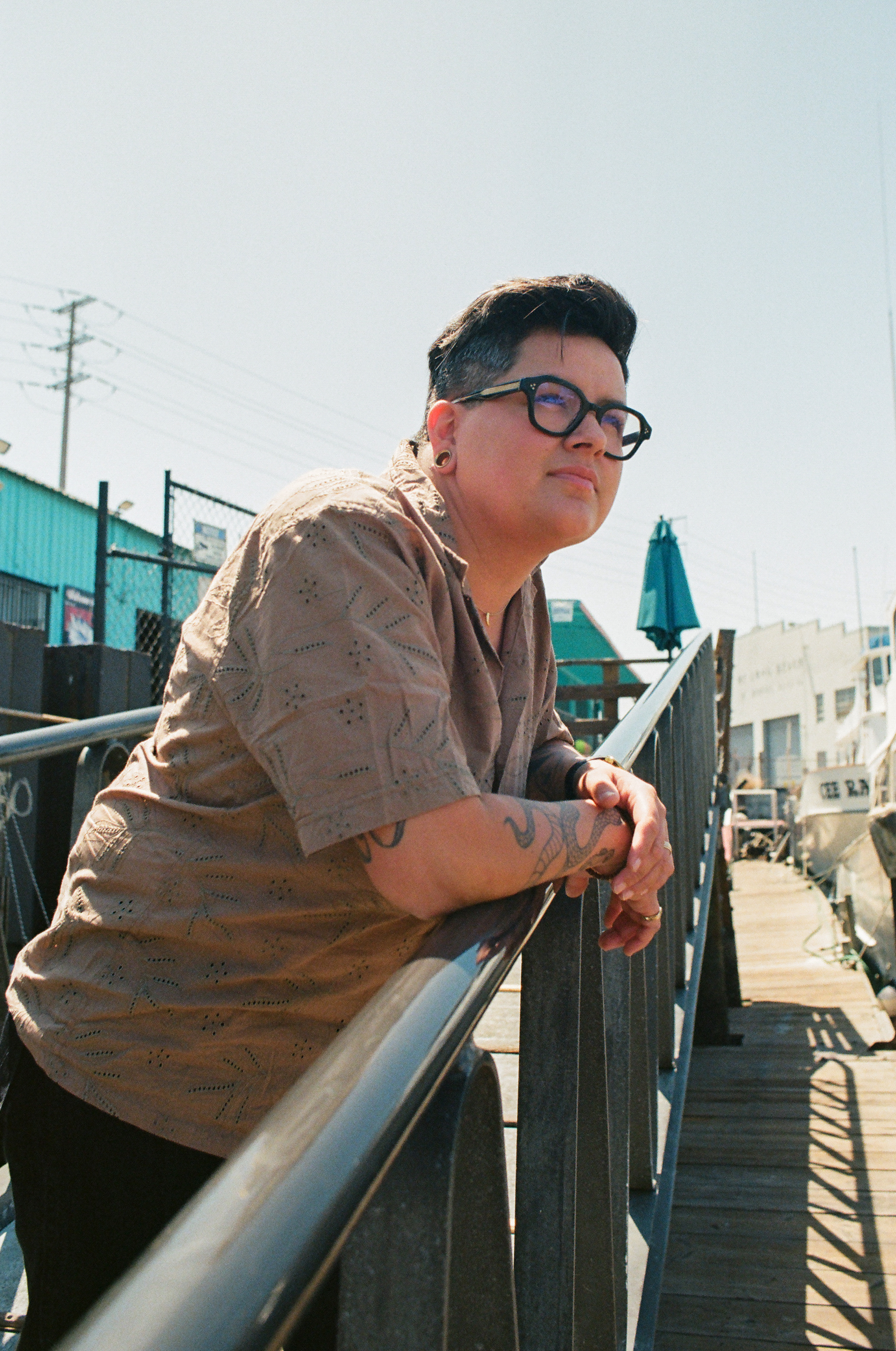
Please select if you are a Job market candidate for the 25-26 Academic Year: Yes I am a doctoral Job market candidate and will be seeking ful time employment during 24-25.
Please select if you would be open to having prospective students email you with questions regarding your doctoral student experience: Yes please let prospective students know I am available as a student resource.
Your reasearch intrests include:Speculative Environmental Futures, Queer and Women of Color Feminisms, Chicanx and Latinx Studies, Critical Geography, Feminist STS, Wetlands, Swamps, U.S. Empire, Extractive Industries, Grassroots and BIPOC led Social Movements.
Which course,assignment or reaearch opportunity has beem most remarkeble, thus far, as an Ethnic Studies doctoral student? I have been fortunate to learn from scholars in our department who model the research and teaching I want to bring to the next stage of my career. The ETIM 289 interdisciplinary methods course offerings in our department such as Unthinking the Archive; Performance Studies; and Speculative World Making are remarkable examples of how I envision the connective thread between my research and teaching. These courses have been instrumental in shaping my interdisciplinary dissertation project "Insurgent Ecologies: Against Pollution and Containment in Los Angeles's Port Cities" which is based on the multi-species forms of resistance that emerge to counter the cultural and extractive industries that have led to global climate change.
Which course assignment or research opportunity has challenged you the most, thus far, as an Ethnic Studies doctoral student? One of the research opportunities that became my greatest challenge as a doctoral student is the added coursework and training associated with the doctoral specialization available to ethnic studies graduate students in the Program for Interdisciplinary Environmental Research. When I was selected for the program I had to get out of my comfort zone and into a wet suit to learn about oceanography, conservation science, geology, and other exciting things. I got to spend more time in the ocean than I imagined I could as a scholar working in the arts, humanities, and social sciences. This opportunity has allowed me to engage in conversations with people looking at environmental problems at different scales and with different sets of questions. This challenge has strengthened the scope of my work and made me cognizant of the stakes of interdisciplinary conversations at the university.
What has been your produest accomplishment (so far) as an Ethnic Studies doctoral student? I am proud of my contributions to building with and tending to the department’s community throughout my academic journey. The generosity and support I’ve received from staff, students, and faculty make my service feel like a great accomplishment. A few highlights of my service on various committees include: leading the organizing efforts alongside fellow graduate students for the Ethnic Studies Department's Graduate Student Pedagogy Retreat; participating in the colloquium committee that organized and hosted dozens of alumni for the department’s 30th-anniversary celebrations; and serving as a resource for prospective graduate students during admit day events and beyond.
How do you look forward to impacting the field of Ethnic Studies?One of the ways I look forward to impacting the field of ethnic studies is through constantly calibrating my interdisciplinary feminist pedagogical practices. I hope to center the work of Black, Chicana, and Indigenous feminists on change and adaptation and making life in my writing and I hope to be a caring mentor and a generous colleague.
Radhika Marwaha
Radhika Marwaha (She/Her/Hers)
Email: rmarwaha@ucsd.edu
Doctoral Candidate
Please select if you are a Job market candidate for the 25-26 Academic Year: No, I am not yet a doctoral job market candidate
Please select if you would be open to having prospective students email you with questions regarding your doctoral student experience: Yes please let prospective students know I am available as a student resource.
Your reasearch intrests include:Critical Caste Studies, Black-Indigenous-Dalit Relations/Orientation to Ecologies and Environmental Futurisms, Sikh & Panjabi Studies, queer of color critique, and Transnationalism.
Which course,assignment or reaearch opportunity has beem most remarkeble, thus far, as an Ethnic Studies doctoral student? In the summer after my second-year, I was blessed to be a part of SIDAK, the Sikh Research Institute’s Leadership Program that is focused on inculcating a Gurmat-centered lens not only towards Sikh and Panjabi histories and futures, but also in broader social justice struggles we find ourselves up against: environmental destruction, capitalist extraction, and our long-drawn fights against white supremacy, brahmanism, and cis-heteropatriarchy. Building on my training as Ethnic Studies scholar, I was able to be expansive in interpreting the Gurmat framework that brings together Baani (the Infinite Wisdom or Sabad Guru), Tavarikh (History), and Rahit (Lifestyle), in thinking through visions of organizing work, building new worlds and ethical relationships of solidarity, that fall in line with my own connection to the Divine. Meditating on the Asa Ki Var (“Ballad of Hope”) composition within the Guru Granth Sahibji with caring and nurturing peers and teachers was extremely transformative because it coalesced so well with ruminations and tensions that have been at the core of my Ethnic Studies journey – including the kind of heartbreak and burnout that can come with constantly engaging with the gravity of violences.
Which course assignment or research opportunity has challenged you the most, thus far, as an Ethnic Studies doctoral student? In my second year, I took Professor Boatema Boateng’s course, “COGR 275: Creating to Think” built on the premise that “art is epistemological” and that our creative practices should open up generative pathways to engage with the scholarship in our fields to answer the questions we have been grappling with. This course felt extremely challenging to me at the onset because I felt like I had no sustained creative practice and for the past decade or so had only been intellectualizing the work I was doing, or even when I was forced to be creative, I simply was producing a collage or a website without thinking with art. Texts we learned from such as Erica Hunt and Dawn Lundy Martin’s ‘Letters to the Future: Black Women/Radical Writing’, as well as the evocative and inspiring work of my peers helped me reconnect with fiction in and beyond ways that I was familiar with. I ended up experimenting with fiction writing as a way to think about the ‘speculative’ and the environment’ across time and space. This of course required me not just to research a ton, but to carve out time and space for me to hear and scribble together a story.
What has been your produest accomplishment (so far) as an Ethnic Studies doctoral student? I think my biggest accomplishments have been the relationships I have built during my time in this program – whether at UCSD, or outside. My friends and mentors have and continue to be instrumental in making the transition to a new geography and field so enriching. Further, being connected to the institution/North American academia as an oppressor-caste student has helped me work on projects to promote cultural interrogation, unlearning hegemony, and diversifying spaces of intellectual and artistic production in South Asian diasporic communities, in ways that I wouldn’t have been able to without access to this program.
How do you look forward to impacting the field of Ethnic Studies? It is my humble desire that by the time I graduate from this program, my work can serve as a citation for others to build on, for which I hope to be able to produce scholarship that is methodologically and conceptually evocative as well as responsibly talks back to operations of white supremacy, brahmanism, and cis-heteropatriarchy in extractive industries. Outside of my research, I hope to use care and joy as my guiding compass in my teaching and community work. Amidst the constant noise, I want to utilize my Ethnic Studies training to help cultivate the quiet we desire as young people to connect with ourselves and our histories – however messy these might be. This is crucial in understanding our place and purpose in this world, in gentle and sustainable ways.
Gus Meuschke
Gus Meuschke
Email: gmeuschk@ucsd.edu
Education: BA Vassar College; MA University of Arizona
Research Interests: My research interests broadly include queer of color critique, Indigenous studies, comparative ethnic studies, visual archival research, museum studies, and performance studies. In my doctoral research, I want to investigate the possibility of queer multiracial social formations and shared ways of being that do not have foundations in anti-Blackness and settler colonialism, which I will locate in speculative visual archives, art, and performance.
Amira Noeuv
Amira Noeuv (She/her/hers)
Email: amnoeuv@ucsd.edu
 Doctoral Candidate
Doctoral Candidate
Please select if you are a Job market candidate for the 25-26 Academic Year: Yes I am a doctoral Job market candidate and will be seeking ful time employment during 24-25.
Please select if you would be open to having prospective students email you with questions regarding your doctoral student experience: Yes please let prospective students know I am available as a student resource.
Your reasearch intrests include:Critical Refugee Studies; Global Mental Health Studies; Asian American Studies
Which course,assignment or reaearch opportunity has beem most remarkeble, thus far, as an Ethnic Studies doctoral student? Teaching Environmental Racism during summer sessions.Serving as a Graduate Student Researcher for the Intergenerational Health & Healing Project
Which course assignment or research opportunity has challenged you the most, thus far, as an Ethnic Studies doctoral student? Serving as a teaching assistant for Introduction to Ethnic Studies courses remotely
What has been your produest accomplishment (so far) as an Ethnic Studies doctoral student? Managing personal responsibilities, multiple employments, and working on my own research.Receiving the AAUW fellowship.Publishing with Amerasia Journal.
How do you look forward to impacting the field of Ethnic Studies? Expanding ethnic studies into other interdisciplinary fields such as public/global health, and international affairs studies. Creatively present or write about my research.
Daniel Rios
Email: darios@ucsd.edu
Isaias Rogel
Isaias Rogel (He/They)
Email: irogel@ucsd.edu
Doctoral Candidate
Please select if you are a Job market candidate for the 25-26 Academic Year: No, I am not yet a doctoral job market candidate
Please select if you would be open to having prospective students email you with questions regarding your doctoral student experience: Yes please let prospective students know I am available as a student resource.
Your reasearch intrests include:Queer of color critique, latinx/e studies, gender studies, affect theory, abjection, horror, Latin American cinema, exploitation cinema, aesthetics, latinidad, performance theory, cultural marxism, literature, contemporary Latin American literature, fiction, creative writing, film studies
Which course,assignment or reaearch opportunity has beem most remarkeble, thus far, as an Ethnic Studies doctoral student? Having the opportunity to work one on one with Professor Marez opened up my research on the uses of abjection in Latin American horror to historical materialism and gave me direction towards a comparative study between Mexico and Guatemala, nation state building, and the uses of affect and emotion in regards to national belonging. I cherish this experience because it helped me bridge my theory heavy interests with research grounded in real life events, a task which I feared I could not do.
Which course assignment or research opportunity has challenged you the most, thus far, as an Ethnic Studies doctoral student? In regards to my directed reading with Professor Marez, I think the most challenging aspect of research was understanding that what I initially set out to find in academic texts didn't always pan out, and rather than taking this as a failure of my ability, I readjusted and learned to be open to taking the project in a different direction.
What has been your produest accomplishment (so far) as an Ethnic Studies doctoral student? Although I didn't play a significant role in putting together 2024's Ethnic Studies Conference, I am proud of my colleagues and friends Victoria Siamau and Phuc To, my limited involvement, proud of the undergraduates who attended, and felt accomplished after holding several conversations with undergraduates on research and the horror genre.
How do you look forward to impacting the field of Ethnic Studies?I look forward to helping first-generation students and low-income populations find their voices and form new visions of performing Latinidad.
Liliana Sampedro
Liliana Sampedro (She/Her/Hers)
Email: lsampedr@ucsd.edu
Doctoral Candidate
Please select if you are a Job market candidate for the 25-26 Academic Year: Yes I am a doctoral Job market candidate and will be seeking ful time employment during 24-25.
Please select if you would be open to having prospective students email you with questions regarding your doctoral student experience: Yes please let prospective students know I am available as a student resource.
Your reasearch intrests include:Native American and Indigenous studies; Indigenous water-based pedagogies and methods; critical geography; Critical Latinx Indigeneities; relational ethnic studies; Indigenous and Latina feminisms; cultural studies; speculation; memory and oral history. My dissertation explores how Ñuu Savi (Mixteco) Indigenous water relations, and water itself, invite us to rethink ideas about race, migration, space, time, and Indigenous being and belonging.
Which course,assignment or reaearch opportunity has beem most remarkeble, thus far, as an Ethnic Studies doctoral student? My qualifying paper combined visual cultural analysis, critical geography, and Indigenous feminisms to think about how the confluence of two rivers have exceeded the spatialities of the U.S.-Mexico border. My qualifying paper was significant for me because it marked a turning point in my thinking and writing about migration and borders and towards writing on water in all its present and shifting formations. Water started as a way for me to think critically about Indigenous communities whose lands are bifurcated by the U.S.-Mexico border and pushed me to begin writing seriously about my own Ñuu Savi communities as “People of the Rain.”
Which course assignment or research opportunity has challenged you the most, thus far, as an Ethnic Studies doctoral student? Broadly, the faculty and students in the Department of Ethnic Studies have taught me to think about interdisciplinary methods in more expansive, creative, and challenging ways. The introductory ethnic studies graduate seminars have challenged me to question disciplinary boundaries, pose questions about the intersections, divergences, and relationships between academic fields of knowledge (and their accompanying methods and methodologies), and reconsider more ethical research practices. Ultimately, I’ve been challenged to think through how I might advance the project of ethnic studies by offering theoretical and practical tools for transforming uneven social and material relations.
What has been your produest accomplishment (so far) as an Ethnic Studies doctoral student? As a Ford Foundation Predoctoral Fellow, I’m currently developing a community-engaged research project on recovering and documenting Tu’un Savi (Mixteco) placenames and histories with my communities in the Mixteca Alta of Oaxaca.
How do you look forward to impacting the field of Ethnic Studies? I hope to contribute to emerging conversations at the crossings of Native American and Indigenous studies, Latino/a/x and ethnic studies, and Latin American studies. By accounting for the experiences of Indigenous peoples from Latin America, I hope my scholarship will challenge ethnic studies frameworks of race, immigration, land, and labor.
Bettina Serna
Bettina Serna
Email: bserna@ucsd.edu
Education: California State University, San Marcos, BA and MA
Research: Latinx communities, economy and incarceration related to cannabis
Victoria Siaumau
Victoria Siamau
Email: vsiaumau@ucsd.edu
Education: BA Child Development and Ethnic Studies, Cal Poly San Luis Obispo
Research Interests: Critical race, feminist, queer and decolonial science and technology studies
Citlally Solorzano
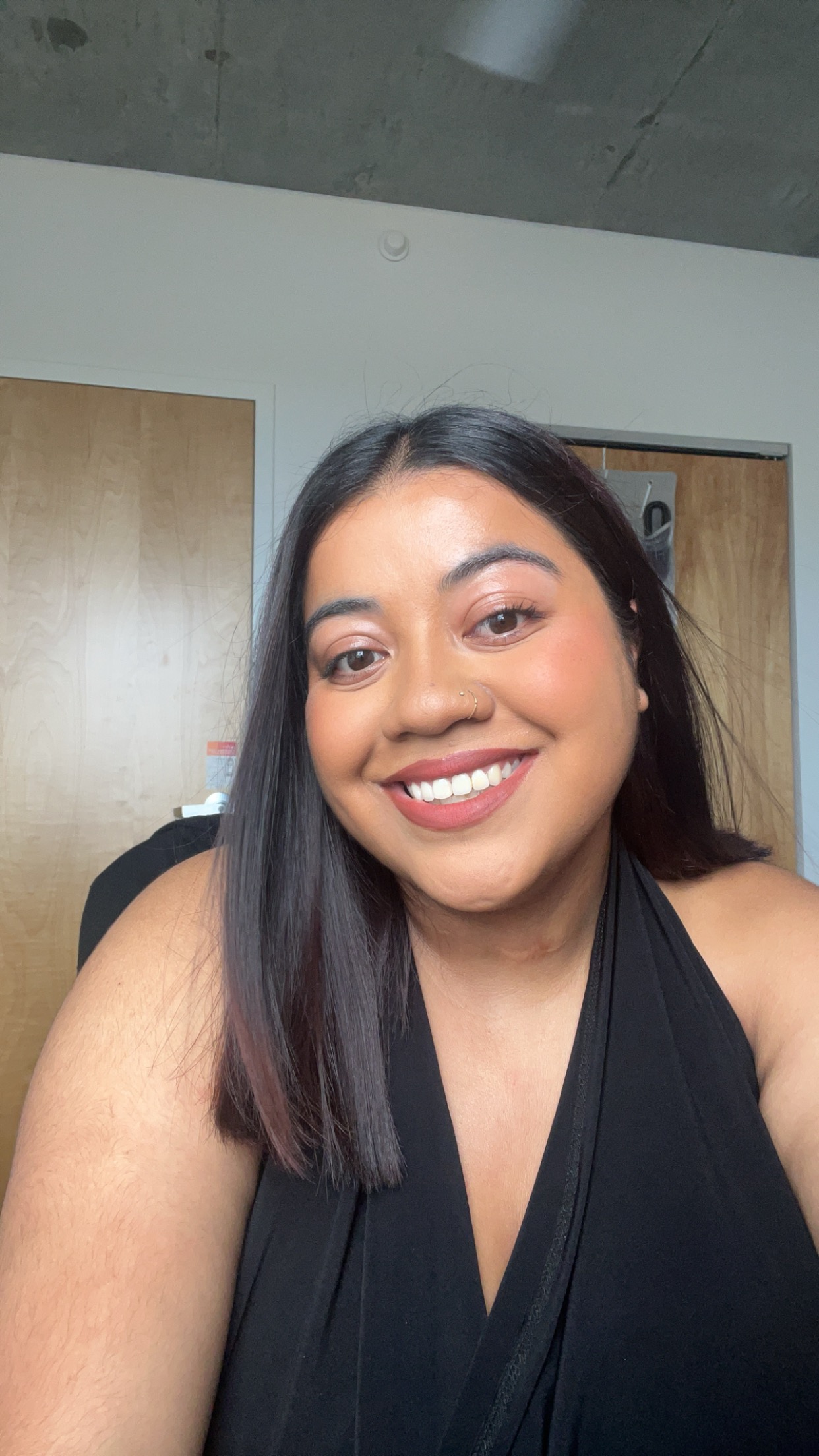 Citlally Solorzano (She/Her/Hers)
Citlally Solorzano (She/Her/Hers)
Email: csolorzano@ucsd.edu
Doctoral Candidate
Please select if you are a Job market candidate for the 25-26 Academic Year: No, I am not yet a doctoral Job market candidate.
Please select if you would be open to having prospective students email you with questions regarding your doctoral student experience: Yes please let prospective students know I am available as a student resource.
Your reasearch intrests include:My research seeks to locate and deconstruct how cumbia rhythms and cumbia cultures (can) reproduce colonial, heteropatriarchal, and neoliberal foundations of being and their impact on Queer and Femme Black and Brown Latinx bodies and experiences. Through critical and disobedient listening, I examine how cumbia genealogies within and across the Latinx diaspora are interlinked with the geopolitical landscapes surrounding them, specifically throughout the intimate and physical borderlands across the US-Mexico border. I then look at how Queer and Femme Black and Brown Latinx folks push against the heteropatriarchal, anti-Black, and anti-Indigenous narratives within these neoliberal cumbia productions through “everyday” intimacies, both internally and externally. This work is grounded in Chicanx and Latinx Studies, Critical Latinx Studies, Latinx Sound Studies, Performance Studies, Ethnic Studies and Critical Gender Studies.
Which course,assignment or reaearch opportunity has beem most remarkeble, thus far, as an Ethnic Studies doctoral student? This past Spring quarter I took Dr. Jade Power-Sotomayor’s “Queer Nightlife: Race, Gender, and Sexuality After Dark” course. Due to the time conflict, I was not able to attend the grad seminar but was present during the undergraduate course under the same title. Learning with and from undergraduate students was a truly fulfilling and wholesome experience. It was a reminder of why I pursued this program– to be in conversation with other students and learn how to build community with one another.
Which course assignment or research opportunity has challenged you the most, thus far, as an Ethnic Studies doctoral student? During the Winter quarter of my first year in the program, I took the most challenging course I’ve taken thus far. I had the honor and privilege of learning from Dr. Shaista Patel’s ETIM 289 “Race/Gender/Sexuality/Caste (The ‘Human’ Question)”. The readings and discussions during this course were and are difficult, but have largely impacted the research I am passionate about.
What has been your produest accomplishment (so far) as an Ethnic Studies doctoral student? Earlier this year I had the opportunity to guest lecture at my alma mater, Cal State Fullerton, for my mentor Dr. Mario Obando’s “Cariño in the Time of the Pandemic” course. During my presentation, I shared my findings from the oral histories I produced for our ongoing project, “Archives of Mortality,” in which we interview folks from within and beyond our community about their experiences during the first year of the COVID-19 Pandemic.
How do you look forward to impacting the field of Ethnic Studies? During this program and beyond, I hope to bridge the gap between Ethnic Studies in the classroom and Ethnic Studies in the community. I was inspired by my colleagues, Phuc and Victoria’s, conference earlier this year in which they challenged the locality of the Ethnic Studies classroom and the hierarchization that often falls behind that. I hope to develop programs that directly collaborate with local community organizations to expand Ethnic Studies beyond the institution to where they become more accessible to others.
Sara Sparks
Sara Sparks (She/Her/Hers)
Email: sjsparks@ucsd.edu
Doctoral Candidate
Please select if you are a Job market candidate for the 25-26 Academic Year: No, I am not yet a doctoral job market candidate
Please select if you would be open to having prospective students email you with questions regarding your doctoral student experience: Yes please let prospective students know I am available as a student resource.
Your reasearch intrests include:Black & Indigenous Connections to Food, Land, and Agriculture, Pedagogies of Embodiment, Ethnic Studies Education, Black Women's Anger & Spirituality, Dance, Sound, and Movement within Black Communities, Critical Mixed Race Studies
Which course,assignment or reaearch opportunity has beem most remarkeble, thus far, as an Ethnic Studies doctoral student? Research Opportunities: Global Food Initiative Fellowship, Working as a GSR with Dr. Holly Okonkwo
Which course assignment or research opportunity has challenged you the most, thus far, as an Ethnic Studies doctoral student? Course: ETIM 289 Question of the Human
What has been your produest accomplishment (so far) as an Ethnic Studies doctoral student? Fellowship: Compton College Ethnic Studies Summer Instructor Training Institute (enabled me to grow as an instructor and receive other teaching opportunities)
How do you look forward to impacting the field of Ethnic Studies?Teaching, as of now in community colleges or the CSU system
Phuc To
Phuc To
Education: BA Biological Sciences & MA Asian American Studies, UC Irvine
Research Interests: For my dissertation research, I want to interrogate ways in which the rise of NPIC has compromised Black-Asian solidarity and Asian American radicalism and activism since the late 1970s.
Racquel West
Racquel West
Email: rawest@ucsd.edu
Education: BA Geography and History, U of Washington
Research Interests: Museum studies and speculative theory
Christie Yamasaki
Christie Yamasaki
Email: chyamasaki@ucsd.edu
Pronouns: She/her
Education: University of California Los Angeles, MA, Asian American Studies; University of California Los Angeles, BA, Economics
Muhammad Yousuf
Muhammad Yousuf (He/Him/His)
Email: syousuf@ucsd.edu
Doctoral Candidate
Please select if you are a Job market candidate for the 25-26 Academic Year: No, I am not yet a doctoral job market candidate
Please select if you would be open to having prospective students email you with questions regarding your doctoral student experience: Yes please let prospective students know I am available as a student resource.
Your reasearch intrests include:Critical Muslim Studies; sectarianism & Islamophobia; Shi'i liberation theology; complicity & neoliberalism; martyrdom & memory; political spirituality & secularism; decolonial, abolitionist & anarchist thought; continental philosophy.
Which course,assignment or reaearch opportunity has beem most remarkeble, thus far, as an Ethnic Studies doctoral student? Teaching my own summer course on US Muslim Politics & Culture!
Which course assignment or research opportunity has challenged you the most, thus far, as an Ethnic Studies doctoral student? ETHN 289--Complicating Solidarities with Dr. Patel (SP19)
What has been your produest accomplishment (so far) as an Ethnic Studies doctoral student? Seeing undergraduate students and workers across this campus implementing ethnic studies' radical critiques of this institution through their activism.
How do you look forward to impacting the field of Ethnic Studies? My goal is to produce and practice ethnic studies scholarship and pedagogy which disrupt the University's active complicity in the destruction of life and land.
Learn more about the Ethnic Studies Ph.D. Alumni.
